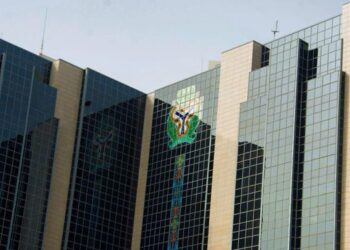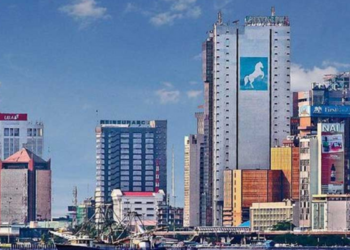Agusto & Co said in its recently published 2020 Banking Industry Report that commercial banks in the country have collectively written off about N1.9 trillion worth of impaired loans between the 2015/2016 recession and now.
Highlights of the report, which was seen on Agusto’s website, noted that Nigeria’s weak macroeconomic climate was a major contributing factor to the loan write-offs. Also, the 2019 introduction of IFRS 9 accounting standard played a major part. Part of the report said:
“In the last four years, following the 2015/2016 recession, the Nigerian banking industry has written off a minimum of ₦1.9 trillion of impaired loans from its loan portfolio. This volume of write-offs has been driven by the weak macroeconomic climate and the introduction of the IFRS 9 accounting standard in 2019.”
READ ALSO: Fitch says Nigerian banks have a risk indicator of 12.14, explains why
What this means
The COVID-19 pandemic has presented another serious threat that could significantly affect banks’ asset quality in the long-run. As you may well know, different sectors of the economy have so far been negatively impacted by the pandemic. And banks are significantly exposed to most of these sectors, including oil and gas, hospitality, and aviation. There is, therefore, the risk of more loans going bad.
In the meantime, the Central Bank of Nigeria had permitted banks to offer loan forbearance to some of their customers. This will ensure that loans can be restructured for customers in sectors of the economy that have been particularly hit hard by the pandemic. The Agusto report noted that this would help moderate the expected asset quality deterioration.
READ MORE: FG rolls out N2.3 trillion survival funds for MSMEs; see criteria
“In the wake of the unprecedented COVID 19 pandemic, the Industry’s asset quality is further threatened given significant exposures to vulnerable sectors. The Central Bank of Nigeria (CBN) has granted palliatives to banks in form of permitted loan restructurings to certain sectors that have been severely affected by the pandemic and we expect this to moderate the anticipated level of asset quality deterioration in the short term,” another part of the report said.
READ: COVID-19 to weaken Nigerian banks’ assets in 2020- Report
The backstory
During last week’s MPC meeting of the Central Bank of Nigeria, Governor Godwin Emefiele disclosed that about 22 commercial banks have so far restructured N7.8 trillion worth of loans (or 41%), out of a total of N19.9 trillion, for some 35,640 customers. As Emefiele explained, it would be preferable to restructure up to 65% of loans instead of allowing such loans to go bad.























You said none interest but you changed 5%, to pay the money back is not a problem but a real Muslim can ever collect the loan please remove the 5% and let us benefit from it sir